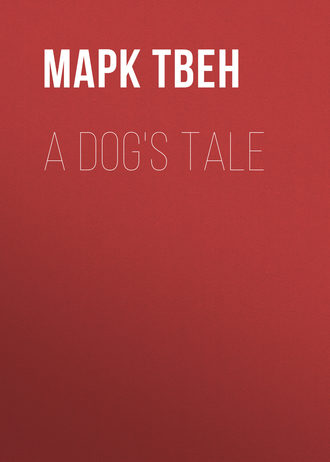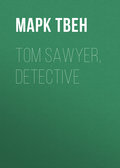
Марк Твен
A Dog's Tale
You can see by these things that she was of a rather vain and frivolous character; still, she had virtues, and enough to make up, I think. She had a kind heart and gentle ways, and never harbored resentments for injuries done her, but put them easily out of her mind and forgot them; and she taught her children her kindly way, and from her we learned also to be brave and prompt in time of danger, and not to run away, but face the peril that threatened friend or stranger, and help him the best we could without stopping to think what the cost might be to us. And she taught us not by words only, but by example, and that is the best way and the surest and the most lasting. Why, the brave things she did, the splendid things! she was just a soldier; and so modest about it – well, you couldn’t help admiring her, and you couldn’t help imitating her; not even a King Charles spaniel could remain entirely despicable in her society. So, as you see, there was more to her than her education.
CHAPTER II
When I was well grown, at last, I was sold and taken away, and I never saw her again. She was broken-hearted, and so was I, and we cried; but she comforted me as well as she could, and said we were sent into this world for a wise and good purpose, and must do our duties without repining, take our life as we might find it, live it for the best good of others, and never mind about the results; they were not our affair. She said men who did like this would have a noble and beautiful reward by and by in another world, and although we animals would not go there, to do well and right without reward would give to our brief lives a worthiness and dignity which in itself would be a reward. She had gathered these things from time to time when she had gone to the Sunday-school with the children, and had laid them up in her memory more carefully than she had done with those other words and phrases; and she had studied them deeply, for her good and ours. One may see by this that she had a wise and thoughtful head, for all there was so much lightness and vanity in it.
So we said our farewells, and looked our last upon each other through our tears; and the last thing she said – keeping it for the last to make me remember it the better, I think – was, “In memory of me, when there is a time of danger to another do not think of yourself, think of your mother, and do as she would do.”
Do you think I could forget that? No.
CHAPTER III
It was such a charming home! – my new one; a fine great house, with pictures, and delicate decorations, and rich furniture, and no gloom anywhere, but all the wilderness of dainty colors lit up with flooding sunshine; and the spacious grounds around it, and the great garden – oh, greensward, and noble trees, and flowers, no end! And I was the same as a member of the family; and they loved me, and petted me, and did not give me a new name, but called me by my old one that was dear to me because my mother had given it me – Aileen Mavourneen. She got it out of a song; and the Grays knew that song, and said it was a beautiful name.
Mrs. Gray was thirty, and so sweet and so lovely, you cannot imagine it; and Sadie was ten, and just like her mother, just a darling slender little copy of her, with auburn tails down her back, and short frocks; and the baby was a year old, and plump and dimpled, and fond of me, and never could get enough of hauling on my tail, and hugging me, and laughing out its innocent happiness; and Mr. Gray was thirty-eight, and tall and slender and handsome, a little bald in front, alert, quick in his movements, business-like, prompt, decided, unsentimental, and with that kind of trim-chiseled face that just seems to glint and sparkle with frosty intellectuality! He was a renowned scientist. I do not know what the word means, but my mother would know how to use it and get effects. She would know how to depress a rat-terrier with it and make a lap-dog look sorry he came. But that is not the best one; the best one was Laboratory. My mother could organize a Trust on that one that would skin the tax-collars off the whole herd. The laboratory was not a book, or a picture, or a place to wash your hands in, as the college president’s dog said – no, that is the lavatory; the laboratory is quite different, and is filled with jars, and bottles, and electrics, and wires, and strange machines; and every week other scientists came there and sat in the place, and used the machines, and discussed, and made what they called experiments and discoveries; and often I came, too, and stood around and listened, and tried to learn, for the sake of my mother, and in loving memory of her, although it was a pain to me, as realizing what she was losing out of her life and I gaining nothing at all; for try as I might, I was never able to make anything out of it at all.




